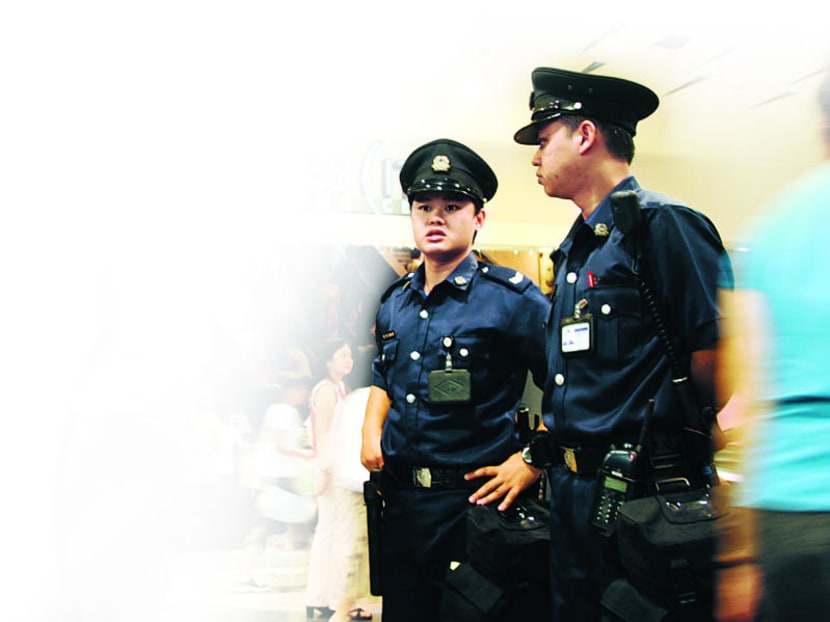MPs, experts laud police review of interview process involving minors
SINGAPORE — Counsellors, lawyers and Members of Parliament yesterday welcomed the police’s review of their procedures when questioning young persons, as they called for the Appropriate Adult (AA) scheme — under which an adult will be present when persons with intellectual or mental disability are required to give a statement to the police during investigation — to be extended to minors as well.
SINGAPORE — Counsellors, lawyers and Members of Parliament yesterday welcomed the police’s review of their procedures when questioning young persons, as they called for the Appropriate Adult (AA) scheme — under which an adult will be present when persons with intellectual or mental disability are required to give a statement to the police during investigation — to be extended to minors as well.
They said that allowing an adult who is familiar to the young persons to be present would provide assurance and safeguard the interest of the youths.
Since the start of this year, the AA scheme has been administered by the Movement for the Intellectually Disabled of Singapore. According to the Law Society website, the role of the appropriate adult is to help the persons with intellectual or mental disability communicate more effectively during the police interview and help ensure that statements recorded are reliable.
On Monday, the police had announced that they would review whether to allow an appropriate adult to be present when interviewing young persons, after a 14-year-old who was under investigation in an outrage of modesty case died, hours after he was questioned.
On why no one from the school accompanied the boy to the police station, the school principal said yesterday that the boy and the police spoke to his parent before he was taken to the station.
“We noted from the conversation that the parent would be going to the police station. We kept in contact with his parent to check on his well-being,” the principal said.
Responding to TODAY’s queries, the Ministry of Education said in general that schools have the obligation to cooperate with the police and “not stand in the way of law” when students are assisting with investigations, but they also seek to “ensure the well-being of our students”.
Under its guidelines, schools will speak to the student first before the police speaks with the student, and a parent or guardian is contacted before the student leaves the school with the police to assist in an investigation. The school will also ensure the student has something to eat before leaving with the police.
Youth counsellor Pastor Andrew Choo felt it would be good to have “a neutral party’s involvement”, while an alternative would be to keep a video record of police interviews. Currently, the Ministry of Home Affairs is looking into recording interviews on video during investigations, with a pilot set to start in the first quarter of this year.
He added that the process of dealing with minors has improved — in the past, they would be handcuffed when brought in for questioning.
According to an ex-police-officer who did not wish to be named, the police currently do not allow other parties to be present during interviews because it might hamper investigations.
Mr Tan Hee Joek, a lawyer with Tan See Swan and Co who has worked with young persons brought in for police investigations, said a familiar face would provide assurance to the youth.
“Just walking into the police station can be a scary experience ... it is fair to say that younger suspects are usually more easily frightened than older suspects,” he said. “Just like how you treat young victims with sensitivity, you should treat young suspects with sensitivity as well.”
Mr Raj Mannar, a lawyer with Peter Low LLC, said the AA scheme has been helpful for his clients with intellectual disabilities.
“The adult doesn’t have to be a parent or anyone related to the child, it can be a counsellor agreed upon by the parties or even appointed by the court,” said Mr Mannar.
Singapore Children’s Society director of youth services Carol Balhetchet said the police should seek help from specialists when interviewing vulnerable groups such as children and adolescents, the elderly, and those with special needs.
“The police should be able to garner, or rally, that network of people to help them do the job,” she said.
Tampines GRC Member of Parliament Desmond Choo, who sits on the Government Parliamentary Committee for Home Affairs and Law, said reviews of processes should be conducted regularly, not only when incidents happen.
Mr Choo, who was in the police force for 13 years, said this would not only ensure that investigations are effective, “but also recognise that there are certain interviewees who might need special attention”.







